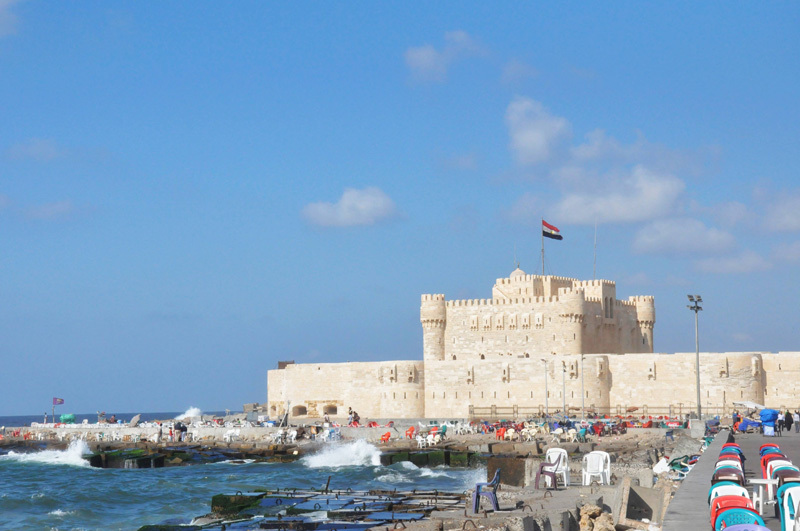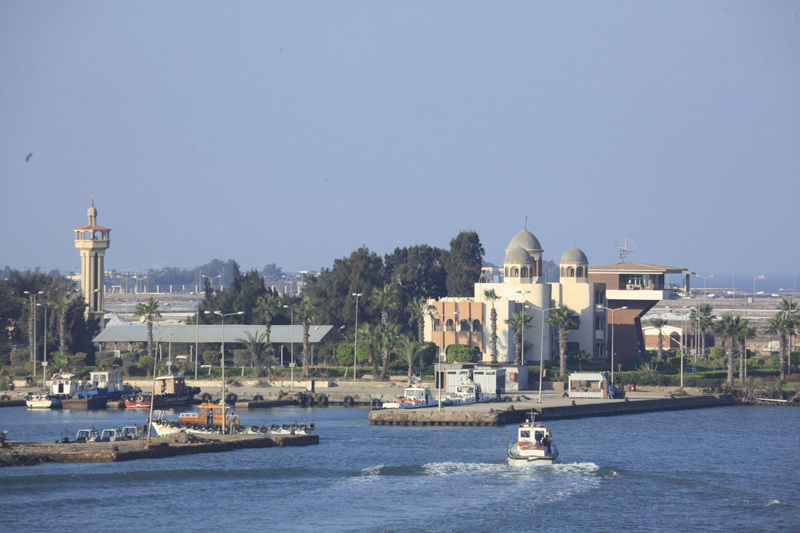
Economic environment
Sisi was elected president in June 2014, which ended the political turmoil in Egypt, stabilized the political situation, launched an ambitious economic development blueprint, and received a lot of financial support from the Gulf Arab countries, and the economic situation has improved significantly.
In March 2015, the Egyptian government issued the "New Investment Law" and launched a number of measures such as "one-stop service" to improve the investment environment and attract more foreign investment. With its special investment environment, Egypt attracts more and more Chinese enterprises to choose Egypt as the undertaking place of its industrial transfer.

(1) Unique location advantage. Egypt straddles the two continents of Asia and Africa, facing Europe across the Mediterranean Sea in the north and the hinterland of the African continent in the southwest. The Suez Canal is a shipping lifeline connecting Europe and Asia, and its strategic position is extremely important. Egypt has a sea and air transportation network connected with European, Asian and African countries and a land transportation network connected with Africa, with convenient transportation and superior geographical location.
(2) Abundant human resources and a potential domestic market. Egypt is a populous country in the Middle East and has abundant labor resources. In the Middle East and Mediterranean coastal areas, Egypt's labor wage level is competitive, and it has a considerable number of educated technical personnel and higher education population. The consumption structure of Egyptian residents is gradually developing from the stage of basic life consumption to the stage of convenient life consumption, and some of them have reached the stage of enjoying life consumption.
(3) Abundant natural resources. Egypt has a large amount of undeveloped wasteland at low prices. Egypt has oil and gas resources. In addition, also has phosphate, iron ore, marble, limestone and other mineral resources.
(4) Facilitated terms of international trade. Egypt joined the World Trade Organization in 1995 and actively participates in various multilateral and bilateral trade agreements. At present, Egypt has joined the Egypt-EU Partnership Agreement, the Greater Arab Free Trade Area Agreement, the Agreement on Qualified Industrial Zones, the COMESA, and the Egypt-Turkey Free Trade Area Agreement.

In June 2015, the three most influential regional organizations in Africa-the East African Community, the Common Market of Eastern and Southern African Development Community-signed an agreement at the summit held in Sharm el-Sheikh, Egypt, and decided to establish a unified market. The ultimate goal is to establish a free trade area on the African continent in 2017, a historic step towards regional integration in Africa. The new unified market covers a total of 0.625 billion people in 26 countries on the African continent, with a gross national product of US $1200 billion billion, accounting for 58% of Africa's total. In August 2015, the Egyptian cabinet decided to establish the International Trade Facilitation Committee. The committee was established to simplify import and export trade procedures. The committee's resolution has been implemented in the first phase of Alexandria, which brings together the Import and Export Regulatory Authority, the Port Authority and other relevant departments to provide a one-stop service, a model that will improve the current accumulation of goods due to the long time it takes to clear customs.
(5) Better infrastructure. Although Egypt's infrastructure faces old problems, it is still relatively perfect for Africa as a whole. Egypt has 64000 kilometers of roads, connecting most of the country's towns and villages. Egypt has 10 international airports, and Cairo Airport is the second largest airport in Africa. Egypt is an international commercial and maritime center with 15 commercial ports and an annual cargo handling capacity of 234.45 million tons. In addition, Egypt has more than 30000 MW of installed power generation capacity, and its power generation capacity ranks first in Africa and the Middle East.

China and Egypt are both developing countries. At present, the two countries are facing similar challenges in reform, stability, and development. The "Belt and Road" initiative is highly compatible with the development strategy of Egypt's Suez Canal Corridor, and the two sides have great potential for cooperation in energy and infrastructure construction. In the long run, China-Egypt investment cooperation is expected to enter a new period of development:
(1) Egypt is an important economic and trade partner of China in West Asia and North Africa. No matter how the current situation changes, Egypt's huge population and special geographical location determine that Egypt will still be an important market for China in West Asia and North Africa, and it can also provide good support for China to expand the West Asia, Africa and European markets.
(2) Egypt's political situation will remain stable and its economy will continue to grow. Although the negative impact of terrorist attacks and poor economic structure on Egypt's political and economic stability is continuous, it is not subversive. No matter how the current situation changes, Egypt's determination to actively attract foreign investment will not change. In fact, the production and operation of Chinese enterprises in Egypt have not been greatly affected in the most turbulent three years. At present, Egypt's investment environment is still better than most African countries, and the security environment and infrastructure are better than most African countries.
(3) The process of economic system reform in Egypt will also gradually improve its policy environment for the use of foreign capital. The severe domestic economic situation forced Egypt to seek foreign capital and foreign aid support. Under the influence of internal and external forces, Egypt's economic reform will gradually improve its investment environment.








